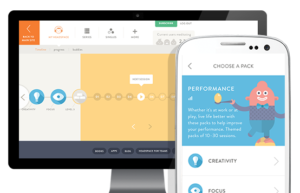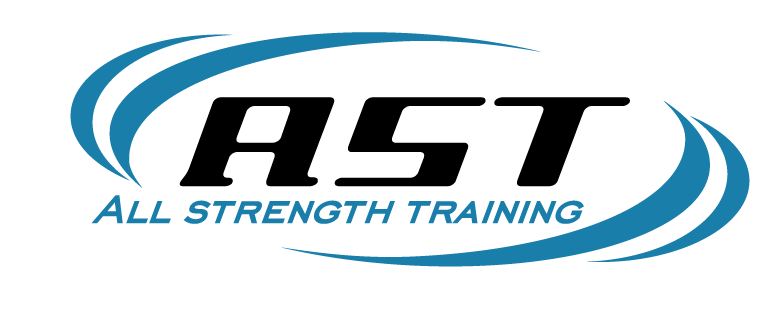Stress “Buffering” for Better Health and Fat Loss
 With the bulk of AST members falling into the “busy professional” category, whether it be sales rep, CEO, accountant, stay-at-home mom, and many others, the biggest constant is always stress management. While working on lowering the amount of stress you’re exposed to should be important, there are certain stresses that aren’t practical to eliminate – a newborn who’s only sleeping for an hour at a time, a long commute on Lake Shore Drive every day, mandatory overtime to meet project deadlines – it’s not always an option to completely rid yourself of the stresses in your life.
With the bulk of AST members falling into the “busy professional” category, whether it be sales rep, CEO, accountant, stay-at-home mom, and many others, the biggest constant is always stress management. While working on lowering the amount of stress you’re exposed to should be important, there are certain stresses that aren’t practical to eliminate – a newborn who’s only sleeping for an hour at a time, a long commute on Lake Shore Drive every day, mandatory overtime to meet project deadlines – it’s not always an option to completely rid yourself of the stresses in your life.1 – Get Better (and MORE) Sleep
2 – Meditation
You may not be able to crank out an hour of yoga or tai chi every day (although if you can, go for it), but you can certainly spare 10 minutes of your time that you might currently be using for Facebookery or Netflix binges, and replace it with guided meditation and deep breathing exercise. The Headspace app takes you through an ongoing… program? I guess that’s an appropriate thing to call it… and as you work your way through and improve your proficiency, new tools are introduced to keep you challenged along the way.

You can do it at any time of the day, but the most popular usage seems to be first thing in the morning or at bedtime. If you’re an anxious sleeper (your body is exhausted but your brain is working overtime) then placing it at bedtime may have the most bang for your buck.
And yes, I know I just suggested ditching electronics for an hour before bed, but I’m willing to make an exception here if you can’t get it in early enough. It’s better than trolling your roommate on Twitter, anyway.
3- Supplementation
Let me get this little disclaimer out of the way first – there isn’t a supplement in the world that will allow you to drop endless amounts of stresses onto your system. Relaxitor (I call dibs on that name, by the way) won’t fix your lack of sleep, the gallon of Red Bull you drink every day, the poor planning that leaves you sprinting out the door late for work every morning… BUT… there are things that can help boost your body’s defenses against chronic stress loads that aren’t necessarily within your control.
Rhodiola rosea – I’m going to save us all time by just directly citing the benefits from Thorne Research:
“Rhodiola rosea has been extensively studied in Russia and Scandinavian countries for over 35 years and is categorized as an adaptogen because of its ability to increase resistance to chemical, biological, and physical stressors.* Rhodiola has been found to inhibit stress-induced depletion of important brain neurotransmitters.* The adaptogenic properties of Rhodiola are attributed primarily to this ability to influence the levels and activity of neurotransmitters and the amino acids that mimic the effect of opiates in the brain, such as the beta-endorphins.* Because it is an adaptogen, Rhodiola has the potential to normalize neurotransmitters in the central nervous system without causing drowsiness or fatigue. In other words, it helps maintain normal levels of brain chemicals but, when they are already normal, Rhodiola will not further affect them.*
Russian studies suggest a positive role for Rhodiola in situations characterized by a decline in work performance, poor appetite, sleep disturbances, irritability, and fatigue.* Studies have found improved mental performance in physicians on night duty who were supplemented with Rhodiola.* Medical students given Rhodiola during exam periods reported improved concentration and performance, as well as enhanced well-being, improved sleep, and greater mood stability.*
In addition to aiding sleep, Rhodiola can enhance mood and decrease occasional episodes of worry and nervousness, allowing for more efficient functioning under stressful conditions.*”
Rhodiola tends to work well as an almost “catch-all” type of stress supplement as it has benefits in improving a wide array of stress reactions.
Suggested Use: 300-400mg per day, in divided doses
Relora (Magnolia officinalis and Phellodendron amurense) – once again, I may as well turn it over to Thorne’s summary of benefits for their version of Relora:
“Individuals who are occasionally anxious, feel stressed, or eat when stressed can have trouble maintaining their optimal weight.
Relora Plus is a proprietary blend of plant extracts from Magnolia officinalis and Phellodendron amurense (two major botanicals used in traditional Chinese medicine for over 1,500 years) along with a mix of B-vitamins, including active forms of B2, B6, B12, and folate.
Studies have demonstrated that the plant extracts in Relora Plus help to lower morning cortisol (a marker of adrenal stress), increase salivary DHEA, manage stress-related eating, and help manage body weight.* Study participants felt significantly more relaxed, less anxious, and better in control of their mood and stress-related eating habits.* The B-vitamins in Relora Plus are nutritional cofactors in the creation of neurotransmitters and have been shown to support mood.*”
Suggested Use: 500mg per dose, taken 2-3 times daily
One quick note on stress supplements – a common prescription for them is to take them toward the end of the day, or after training or some other stressful event. However, if you’re already doing a poor job of handling stress, waiting until after things have already started to accumulate before addressing it is like waiting until the dam has already broken before you try to fix it, instead of making improvements so that it never breaks in the first place.
Most people will benefit the most by dividing their intake into more than one dose and taking it throughout the day, with at least one early-day dose so that you can buffer the effect of stressful events as they happen. For the two supplements listed above, the recommendation here at AST is:
Thorne Rhodiola Rosea – 1 cap (100mg), taken 3x/day (although I may do 2 caps earlier in the day if I’m trying to get to 400mg when stress is HIGH)
Thorne Relora Plus – 2 caps (500mg), taken 2-3x/day (again, on the high side when stress isn’t being tolerated well)
Supplementation is never a magic fix, but when done in conjunction with other efforts, including nutrition and lifestyle changes, it can be extremely valuable.
* These statements have not been evaluated by the Food and Drug Administration. This product is not intended to diagnose, treat, cure, or prevent any disease.


